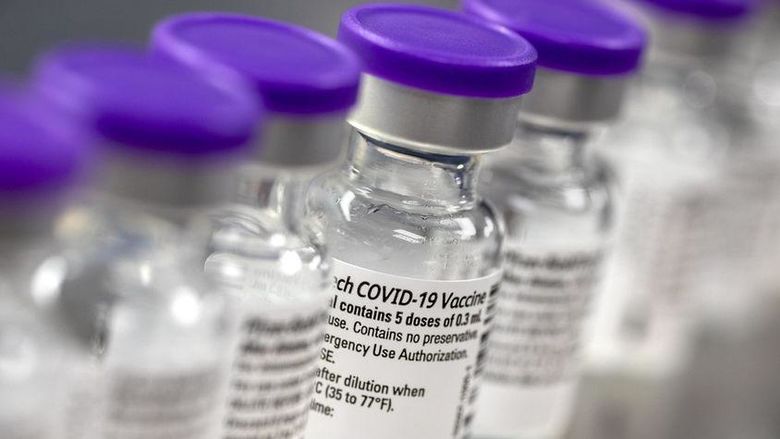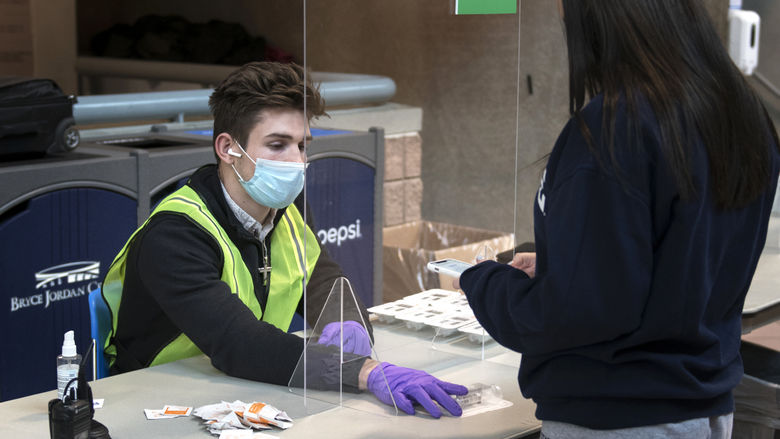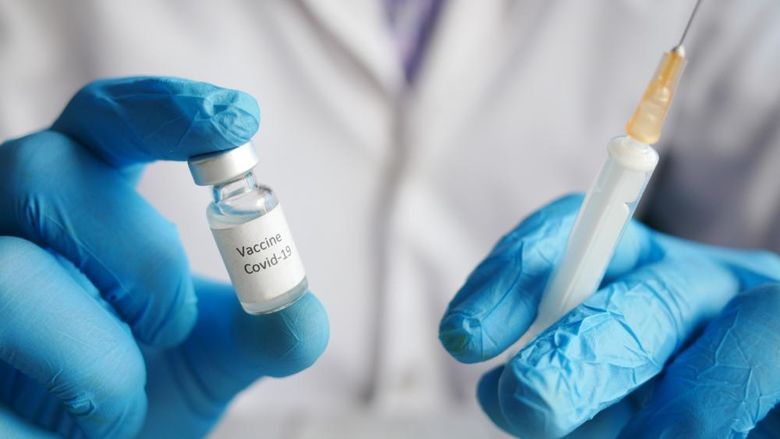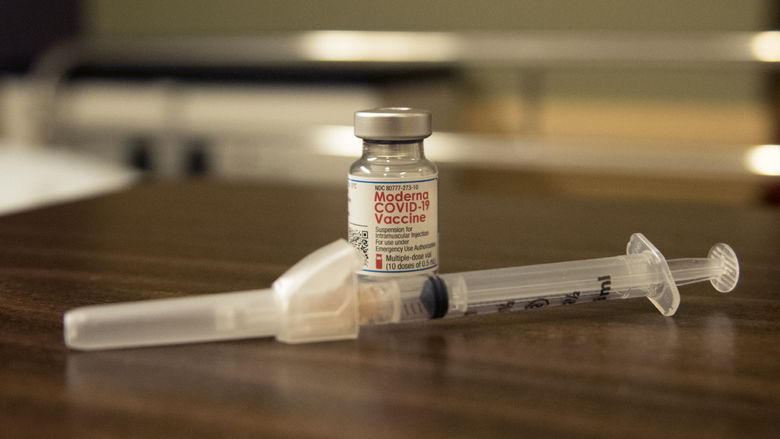UNIVERSITY PARK, Pa. – With COVID-19 cases and hospitalizations on the rise in Pennsylvania and across the nation, Penn State is urging its community to continue to take health precautions and follow guidance from the Centers for Disease Control and Prevention (CDC) to keep themselves and others healthy.
“The most important thing you can do to stop the spread of the SARS-CoV2 virus and other viruses is to stay home when you are experiencing symptoms,” said Dr. Bruce Kraut, senior director of University Health Services. “With all the activities associated with the start of the academic year, including tens of thousands of students and visitors returning to our campuses for classes and events, we do expect to see a rise in the number of COVID-19 cases in our communities. While we are prepared for this, it is vital for everyone on our campuses to monitor their symptoms and follow preventative measures if they feel sick or think they have been exposed.”
If you feel sick or test positive
Individuals who have been exposed to COVID-19 should follow CDC guidance for masking, testing and isolation, as needed.
Those who test positive should stay home and away from others for a minimum of five days and may leave isolation on day six if they have been asymptomatic or if their symptoms have improved and they don’t have a fever for at least 24 hours. They should continue to wear a high-quality mask when indoors around others through day 10. Individuals who continue to experience symptoms after day 5 should remain in isolation until they are fever free for at least 24 hours and their symptoms are improving. Those who are still symptomatic after 10 days should seek medical attention.
Students who are unsure if they should see a clinician can call University Health Services’ 24/7 Advice Nurse line at 814-865-4847 option 3.
Students who test positive should report their results via email to contacttracing@psu.edu and Contact Tracing will provide them with their isolation dates via email. Students living off campus should self-isolate at home and wear a well-fitting mask when around their roommates.
Students living on campus are encouraged to isolate at home, if possible, as on-campus isolation space specifically for COVID-19 is no longer available. The University will work with students who are unable to return home so that they can isolate themselves as safely as possible. Additional guidance regarding isolation will be provided to students living in campus housing.
Faculty and staff who test positive should stay home and inform their supervisor as they would with other illnesses. Individuals whose symptoms and job responsibilities allow may continue to work remotely or they can use accrued sick time as needed. After contacting their manager, staff should designate their time in Workday as “Common > Sick” during their absence. If their sick hours have been exhausted, they can use “Common > Vacation” (or other earned time-off) or “Unpaid No Pay” for absences.
Instructor notification
With the elimination of on-campus isolation space specifically for COVID-19, the university is no longer communicating students' isolation status to instructors. Students are expected to communicate directly with their instructors if they must miss class and/or lab related activities due to a confirmed case of COVID-19 and they are strongly encouraged to share their isolation dates provided by contact tracing with their instructors.
Vaccines
Penn State strongly encourages all members of the community to stay up to date with their COVID-19 vaccinations, including booster doses. At University Park, students can make an appointment with University Health Services (UHS) through myUHS to receive the Moderna bivalent booster. University Park students who need their primary vaccines series, students at Commonwealth Campuses and faculty and staff should visit Vaccines.gov to find a vaccine provider.
Penn State continues to ask that students share their most recent COVID-19 vaccine information with UHS. Students at University Park, Commonwealth Campuses, and Dickinson Law can upload their vaccination records through myUHS. The University is no longer collecting data on vaccination status of faculty and staff except where required by law.
Testing
At University Park, students can schedule a COVID-19 test by making an appointment with a healthcare provider via myUHS. In addition, at-home rapid tests are available for students to pick up on a drop-in basis at UHS and upon request at University Park residence hall commons desks during regular hours of operation. At Commonwealth Campuses, students should consult with their campus health center or Student Affairs regarding the availability of masks and tests.
Individuals should contact their health insurance provider to determine coverage for COVID-19 testing.
Masking
Masking is no longer required in most areas on campus, with some exceptions. In addition to these areas, which will be marked with signage, and masking when sick or after testing positive for COVID-19, the University encourages anyone who wishes to wear a mask on campus to feel free to do so.
Health insurance
Many of the mandates requiring health insurance providers to fully cover COVID-19 treatment and prevention expenses ended when the national Public Health Emergency was lifted on May 11. Information on how this change impacted the Penn State Highmark Blue Shield health plans can be found online. Individuals with other health insurance plans should contact their provider to learn about their specific coverage.
Wastewater monitoring
Penn State researchers will continue to analyze wastewater on and near the University Park campus to monitor changes in the amount of SARS-CoV2 virus that is detectable in the wastewater, which can serve as an early warning that COVID-19 is spreading in the community. Their data can be viewed on the Pennsylvania Wastewater Surveillance System website.
Online resources
The University community is urged to refer to the CDC website for the latest information on the COVID-19 trends and prevention. Additional information on COVID-19 is available on the UHS website.
The University will continue to share any changes or developments with the community on Penn State News and in Penn State Today.



